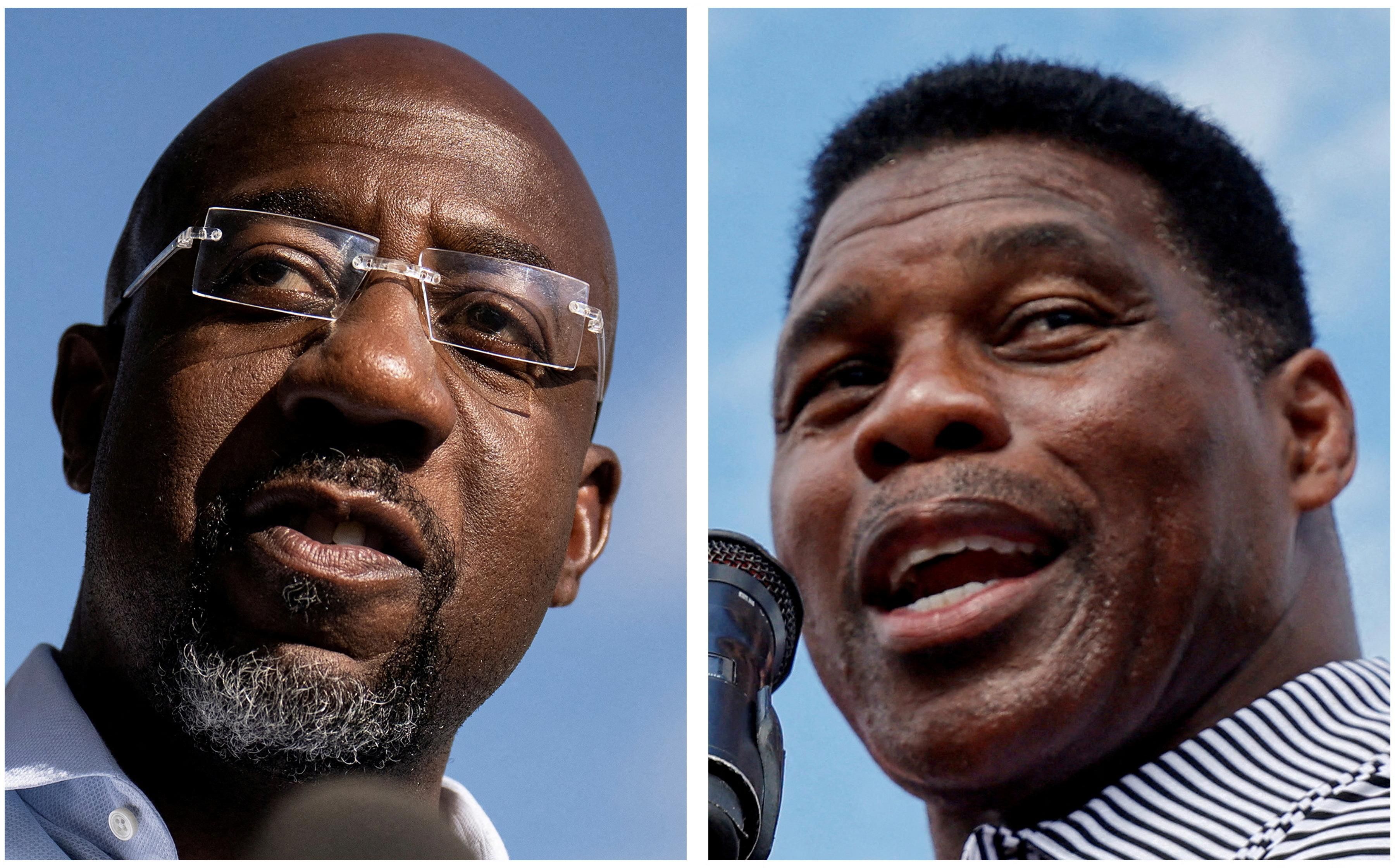What We’re Watching: Georgia's runoff election, Iran’s bluff, Putin's black eye, Ramaphosa's political survival
Walker and Warnock reach the finish line
Tuesday is the day that Georgia voters, exhausted by months of this bitterly contested election, will have their final votes counted. Incumbent Sen. Raphael Warnock is expected to win a close race with football legend Herschel Walker. Early voting, which is expected to favor Warnock, has had a historically heavy turnout. The Democrats have already secured their Senate majority by winning 50 seats. (A 50-50 tied vote is decided by Vice President Kamala Harris, a Democrat.) But a 51st seat would be important for Democrats, because it ensures that no single Democrat can win concessions by threatening to block the party agenda and that Democrats have majority control within every Senate committee, speeding the approval of judges and other Biden appointees. A Warnock victory would also give former President Donald Trump yet another political blackeye in the hotly contested state of Georgia. President Joe Biden carried the state in 2020, while Democrats Warnock and Jon Ossoff were elected. Gov. Brian Kemp and particularly Secretary of State Brad Raffensperger, both Republicans, distinguished themselves in 2020 and 2021 by refusing to support Trump’s effort to overturn his presidential loss in the Peach State.
The Islamic Republic’s smoke screen
Many media publications jumped the gun Sunday in declaring that the Islamic Republic of Iran had axed the modesty police – the unit that imprisons and beats Iranian women who fail to adhere to the regime’s strict modesty rules. So what really happened? In response to mass protests that started after Mahsa Amini, 22, died in custody on Sept. 16 after being arrested by police for improperly wearing her hijab, Iran’s Attorney General Mohammad Jafar Montazer said on Saturday that the regime’s “morality police … have been abolished by those who created them." He also stated that the regime’s strict hijab laws were under review. Western media outlets appeared to eat up the Islamic regime’s propaganda, even though Montazer himself clarified that “no official authority” – meaning Supreme Leader Ayatollah Ali Khamenei – had agreed to these measures. While US Secretary of State Anthony Blinken offered cautious praise, saying such a move would be a “positive thing,” prominent Iranian dissidents, including journalist Masih Alinejad, who recently spoke to GZERO, said that such takes miss the point because the protest movement is calling for full-blown regime change. This comes as a new report released by a Norwegian-based rights group reveals that the Islamic Republic has executed at least 500 people so far this year.
A black eye for Putin
Is Ukraine taking its fight against the Kremlin deep into Russia now? Early on Monday, large explosions were reported at two major Russian air bases located hundreds of miles from the Ukrainian border. Moscow, which blamed Ukrainian drones and said it had shot down several unmanned Ukrainian craft, responded by lobbing a fresh barrage of missiles into Ukraine later in the day. Kyiv, for its part, was mum on any responsibility for the attack as of this writing — saying only, gamely, that “the earth is round.” If the Russian version is true, it would be a brazen strike on the heart of Russia’s national security complex — one of the bases targeted is home to some of Russia’s nuclear bomber fleet, as well as criticaltanker aircraft. The attack is sure to provoke some ripples within the Kremlin: Russian nationalist bloggers have already criticized the military for leaving the bombers exposed, and some Western military experts have suggested that the drones might have been launched from … within Russia itself.
Ramaphosa’s political escape
Regional leaders of the African National Congress (ANC), South Africa's governing party, have rescued the country’s president, Cyril Ramaphosa, from corruption charges and the threat of a successful impeachment vote in parliament. In 2018, Ramaphosa won his position as ANC leader and then as South Africa’s president following a wave of corruption charges against his party rival, the populist former president Jacob Zuma. Six months ago, a former South African intelligence chief (and Zuma ally) accused Ramaphosa of hiding the theft of $4 million from his farm to conceal the fact he had illegally stashed a lot of cash at home. In response, Ramaphosa said thieves had made off with just $580,000 he’d stuffed in a sofa, but said he earned the money on the sale of some buffalo and hadn't wanted to put it into a safe for fear that park employees might access it. A panel of legal experts appointed to report on these charges, expressed “substantial doubt” about the buffalo part of the story. But on Monday, ANC leaders instructed ANC members in parliament to vote against endorsement of the report, defeating a bid by the ANC’s leftist “radical economic transformation” faction to depose him from party leadership. Ramaphosa has now asked the country’s Constitutional Court to declare the report unlawful. Now backed by a majority of votes in parliament, Ramaphosa will lead the ANC into national elections in 2024.This comes to you from the Signal newsletter team of GZERO Media. Sign up today.
